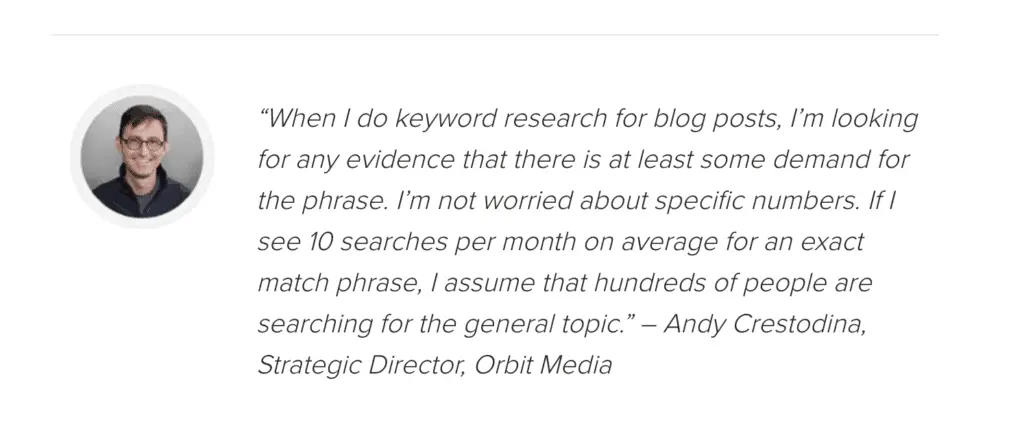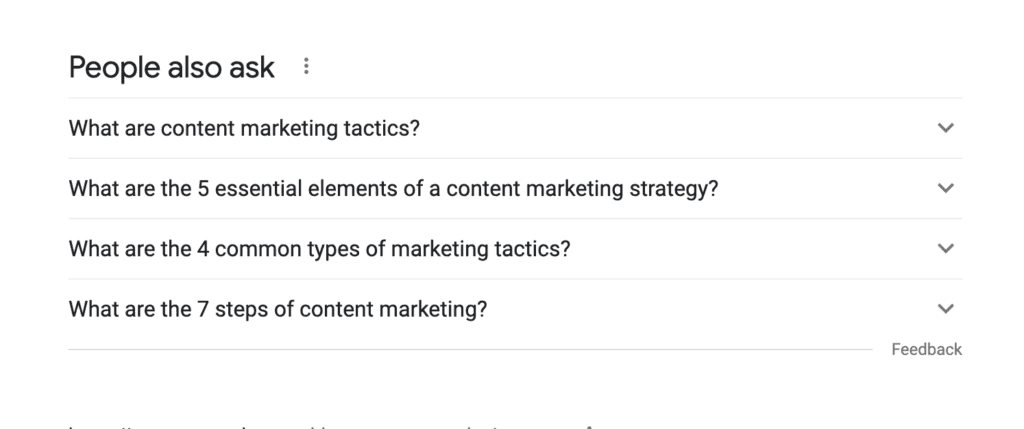In This Article

Google has done it again! If you’re a content marketer or niche blogger, this is why you should use this new way to do SEO Research.
Read our SEO Strategy Guide by Ann Smarty
I’ve been experimenting with several different ways to do SEO research. I already spend a couple hundred dollars on SEO tools, but what I’ve discovered is that the best way to do SEO research is to use the only SEO tool that matters — Google.
Why Google is Your BEST SEO Tool
SEO tools can see as much as 30x variation on the same keyword research data from tool to tool!
Here’s why.
In 2016, Google Ads had stopped sharing exact search volume numbers with free users.
So you went from seeing accurate data in units

— to data numbers in ranges.

You can get your geek on and get more info from the SEO Power Suite.
For our purposes, all you need to know is that SEO tools are HELPFUL and every SEO person uses them for many good reasons.
BUT if you’re a niche blogger or creating very specific content, you might be missing out on opportunities.
There’s a better way that I’ve learned from my friends over at Income School and I’m going to share it with you.

Go to Google Trends to See if There’s Search Volume
If you’re already dealing with ranges of data with an SEO a tool, then you might as well deal with Google’s data — right?
So now you want to find out if your overall topic has enough search volume to write about.
This will take some back and forth, but I start with a general topic phrase.

The fact that there’s a nice trend line across 12 months tells me that this is worth exploring.
Then I look further down to see if there’s any more data:

All these data slots are filled out — and that says “SEO research” is super popular and has a search volume over 10K per month. (there is so much more here – but you’ll have to sign up for Income School)
Search on Partial Question Phrases
So there’s a lot of volume around this basic phrase. What if I decided to answer a question around that phrase? That might be an interesting niche topic.
But what type of question?
This is where the Income School folks created a whole new search worksheet that’s super helpful (again – you’ll have to become a member, but here’s a peek)

THIS spreadsheet right here is totally worth every penny of the affordable monthly membership.
These guys have taken tens of thousands – maybe hundreds of thousands of searches in niches and done the research for you to come up with these awesome niche blog post idea starters.
The New Way to Use Google Autocomplete
You see, Google is tracking billions of searches and by the very fact that they give you suggestions tells you that a SIGNIFICANT number of people are searching for these thing.
Here’s an example:
When you enter any search term in Google, Google starts to complete that search –

See? Google completes that search with phrases that their data shows real people are actually searching for.
You already knew that — but wait — there’s more. And it’s not what you think.
DO NOT pick any of those!
In the past, you could. But things have shifted and these phrases are no longer as accurate.
Just click enter right after “Why seo research” and look at what comes up.

This is where you put your “searcher” or “customer” hat on and look for great content opportunities.
You might be good at this, or you might suck at this. If you suck (like me) you just need to keep practicing.
For me, it helps to talk it out — yes, aloud. I literally speak as I search and say things like “I’m a marketing consultant and I’m curious about seo research” —
- The phrase “seo research” was too basic
- I’m going to ask some questions.
- “Why SEO research” — sounds like a good question
All the results are about “keyword research” — but that’s not what I was after.
THIS IS IMPORTANT and this is why I talk it out — out loud.
Take Note When Google Gives You Unexpected Results
I wasn’t after “Why keyword research” — again, this is very basic and not relevant.
WHY SEO RESEARCH — why is it hard? Yeah, something like that. Why is it ineffective?
At this point, I’m frustrated because (again, I suck at this) all I’m finding on Google is SEO Keyword Research – and apparently Google thinks that this is what I want to know – but I’m not even AT keyword research yet.
Why SEO is important — is a stupid question for me. I’m already there.
SEO Keyword research tools — ok, I get that too. But that’s not what I’m after.
I go down the SEO research trends.
In my mind, I thought “trends” might get close to answering my question of “Why SEO research”
And THAT’S when I hit on what I was really, really looking for.
WHY SEO RESEARCH keeps giving me the same answer across 10 articles?!
Notice how this topic is unique. While it may NOT be worthy of a blog post, I’ll write this down for topic fodder.
People Also Ask
Another fun way to find your blog topic is to use the “People Also Ask” for inspiration.

You can click on these searches to see what comes up and what you NOTICE IS MISSING from the information.
Answer the Public
AnswerThePublic.com takes all of these phrases and puts them onto one page.

This helps you see ALL of these different search permutations at once and it helps you to think about what searchers’ intent could be.
Should You Ditch Your SEO Tools?
Personally, I’m not ditching ALL of my SEO tools this week. But I am using these new techniques I learned with Income School. In fact, I’d recommend you check them out over at YouTube.
I like the idea of having at least SOME SEO data from a tool, but honestly, it’s not going to make or break your content.
In the End, Write for the Reader
As it turns out, I got the best SEO advice almost 20 years ago — write for the reader.
My favorite question to ask is “What does the reader need to know about this topic? My next level question is “What does the reader need to know — that they don’t know they need to know?”
That’s why I’m so frustrated with Google these days — it’s a blind leading the blind expedition and YOU the searcher are never sure if you’re getting what you really need to know.